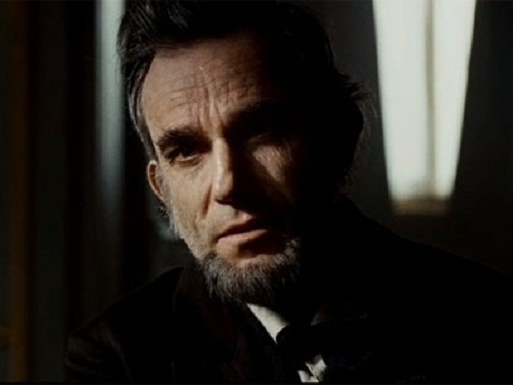
Steven Spielberg recruited far-left writer Tony Kushner, the playwright behind “Angels in America,” to help bring Abraham Lincoln to the big screen.
Both men left political posturing aside to focus on the President’s herculean effort to push the 13th amendment through.
That leaves “Lincoln” as the most ornate political drama in ages, a nuts and bolts affair showing how an historic piece of legislation passed during the height of the Civil War. We’re even treated to the amusing sight of a film extolling Republicans for their work on behalf of civil rights.
So why does “Lincoln,” despite its sincerity, intelligence and a masterful turn by Daniel Day-Lewis as the famed president, fail to soar as it should?
“Lincoln” sets aside the president’s fascinating life to delve into the wonky moves that helped end slavery in the fractured, war-torn nation. It’s a worthy subject, but given the breadth and glory of Lincoln’s story, a slightly wider perspective could have yielded a more arresting yarn.
Instead, we’re left to marvel at how Day-Lewis channels the Great Emancipator, humanizing him while affirming his legend all at once.
The Civil War wasn’t simply about slavery, but “Lincoln” treats the matter as the key to the War Between the States.
“Lincoln” opens on the battlefield, a horrifying glimpse of the hand-to-hand combat pitting American against American. It’s as unsparing as Spielberg’s “Saving Private Ryan,” but it’s mercifully brief.
We then meet Lincoln (Day-Lewis) addressing a pair of black Union soldiers, and immediately the actor captures the decency and grit we’ve read about in our history texts. The sequence is a bit too … manufactured, but Spielberg mostly avoids such melodramatic gimmes as the story unfolds.
In fact, the director spares “Lincoln” from those distinctly Spielberg flourishes. When the wonkish story gets too knotty, you almost wish Spielberg would trot out some of his well-worn cinematic tricks, assuming he doesn’t go the full “War Horse.”
The bulk of “Lincoln” involves political wrangling, as Lincoln and his team try to cajole reluctant pols to sign on to that crucial amendment. Tommy Lee Jones radiates that Best Supporting Actor glow as Thaddeus Stevens, while James Spader and David Strathairn flesh out the political sentiments of the era in their finely tailored roles.
“Lincoln” sends mixed messages on the home front. Sally Field finds the decency and mental decay behind Mary Todd Lincoln, a troubled woman struggling to stand by her man. Joseph Gordon-Levitt, having a sublime career boost at the moment, is simply lost as the president’s son.
Lincoln himself offers few reasons for such scorn. Day-Lewis’ voice is higher than we expect from the political icon, yet the actor inhabits the man in such a warm, knowing fashion it’s as if he were able to shadow him for months, taking copious notes all the while.
“Lincoln” isn’t a great movie despite a grand lead performance and superlative supporting turns. Kushner’s script is smart, humorous and full of wizened moments, but it doesn’t manufacture the required tension a story of this magnitude demands. Yes, we know the ending already – and the sequences surrounding Lincoln’s death prove unnecessary – but other films have dealt with known history but made it gripping all the same. See “Argo.”
“Lincoln” will mop up Oscar nominations all the same. Day-Lewis should prepare his victory speech, and the film’s handsome production is filled with “nominate me!” winks. It still doesn’t live up to the 16th president, no matter how earnest and even-handed its approach.

COMMENTS
Please let us know if you're having issues with commenting.